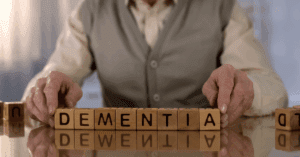
Every 66 seconds, another family loses someone to Alzheimer’s disease. Right now, 5.5 million Americans live with this condition, making it the sixth leading cause of death nationwide. These numbers feel overwhelming when you’re the one considering memory care in Pewaukee, WI, because behind every statistic is a family facing one of life’s most heart-wrenching decisions. Memory care communities exist specifically for this reality. They offer something different from standard assisted living—specialized environments designed for people living with dementia and Alzheimer’s, staffed by professionals who understand cognitive impairments.
Eight Signs It’s Time to Talk About Memory Care
The signs often appear gradually, then suddenly you realize how much has changed. Watching for these eight indicators helps you recognize when your loved one needs more support than you can provide at home.
1. Difficulty with daily tasks like bathing or eating
Your loved one once handled these basics without thought. Now you notice unwashed hair, the same clothes worn for days or significant weight loss. These aren’t just hygiene issues—they’re safety concerns that signal independent living has become risky.
2. Increased confusion or disorientation
Familiar places become foreign territory. Your family member gets lost in their own neighborhood, mixes up days of the week or can’t remember conversations from hours ago. This confusion often intensifies at sunset, a pattern called “sundowning” that makes evenings particularly challenging.
3. Wandering or getting lost
Nearly 6 out of 10 people with dementia will wander at some point. They forget their address, can’t find their way home or leave the house without knowing where they’re going. During Wisconsin winters, this behavior becomes life-threatening.
4. Aggressive or unpredictable behavior
The gentle person you’ve always known might become suspicious, agitated or inappropriate in social situations. These personality shifts often indicate the disease has progressed beyond what families can manage safely at home.
5. Missed medications or poor health habits
Pills scattered on the counter, double doses taken by mistake or medications forgotten entirely. Poor nutrition and dehydration often follow. These lapses create serious health risks that require professional oversight.
6. Unsafe living conditions
You discover expired food still in the refrigerator, burned pans forgotten on the stove or bills piling up unpaid. Clutter creates fall hazards and basic household management becomes impossible. These conditions speak louder than words about declining capabilities.
7. Caregiver stress or burnout
Your own health suffers from the constant worry and physical demands. Persistent exhaustion, emotional strain or neglecting your own needs signals that both you and your loved one need professional support.
8. Doctor recommends higher-level care
Your loved one’s physician may suggest memory care based on cognitive tests, physical changes or safety assessments. Medical professionals offer objective guidance when family emotions make decisions difficult.
Families in Pewaukee who recognize these signs early create smoother transitions and better outcomes. The key is acting on what you observe rather than hoping things will improve on their own.
How to Start the Conversation with Your Loved One
The words feel stuck in your throat. You know this conversation needs to happen, yet the thought of discussing memory care with someone you love feels almost impossible. That hesitation makes perfect sense—you’re about to address something that will change both of your lives.
Choose the right time and setting
Your loved one deserves this conversation to happen when they feel safe and comfortable. Find a quiet space free from television noise or other distractions. Morning often works best for people experiencing memory challenges, when their minds feel clearest and most receptive. Make sure you’re in a good place to communicate. Ideally, it will be quiet and calm, with good lighting. Don’t rush this moment—give yourselves plenty of time to talk through questions and emotions that surface. Watch for signs they’re already feeling tired, hungry or agitated. Those moments rarely lead to productive conversations about anything, let alone something this significant.
Use gentle, supportive language
How you say something matters more than the exact words you choose, especially when memory issues are present. Your tone carries the real message—let it reflect your love and concern rather than fear or frustration. Try these approaches that tend to work better:
- “I’ve noticed you seem frustrated with household tasks lately,” instead of “You can’t take care of yourself anymore.”
- Highlight the social opportunities and activities rather than focusing on what they can’t do
- Avoid arguing about their abilities or trying to correct their perception of reality
- Present this as meeting their current needs, not as a permanent life sentence
Be prepared for emotional responses
Expect tears, anger, fear or flat-out denial. These reactions are completely normal and understandable. Research shows people with cognitive impairment often experience changes in emotional responses and may have less control over expressing feelings. Don’t try to logic your way through their emotions or dismiss what they’re feeling. Sometimes you’ll need to pause the conversation and come back to it later. Some families need several gentle discussions before reaching acceptance. Remember—you’re having this conversation because you care deeply about their well-being. Let that love guide your patience through whatever response comes your way.
Improving Life Quality
Trust what you’ve observed. Those missed medications, unsafe moments and changes in behavior—they’re telling you something important. Many families discover something unexpected: professional memory care often brings relief and improved quality of life to everyone involved.
Contact us at (262) 542-3434 to learn more about Heritage Court Wauskesha when you’re ready to take that next step. Sometimes, the most loving thing you can do is admit that professional care serves your family member better than struggling alone. You’re not giving up. You’re choosing what’s best. That takes courage and it deserves recognition.
FAQs
Q1. How can I tell if my loved one needs memory care? Look for signs such as difficulty with daily tasks, increased confusion, unsafe living conditions, missed medications or aggressive behavior. If you notice these changes, it may be time to consider memory care.
Q2. How do I start a conversation about memory care with my loved one? Choose a quiet, comfortable setting and a time when your loved one is most alert. Use gentle, supportive language, focus on the benefits and be prepared for emotional responses. It may take multiple conversations to reach acceptance.


